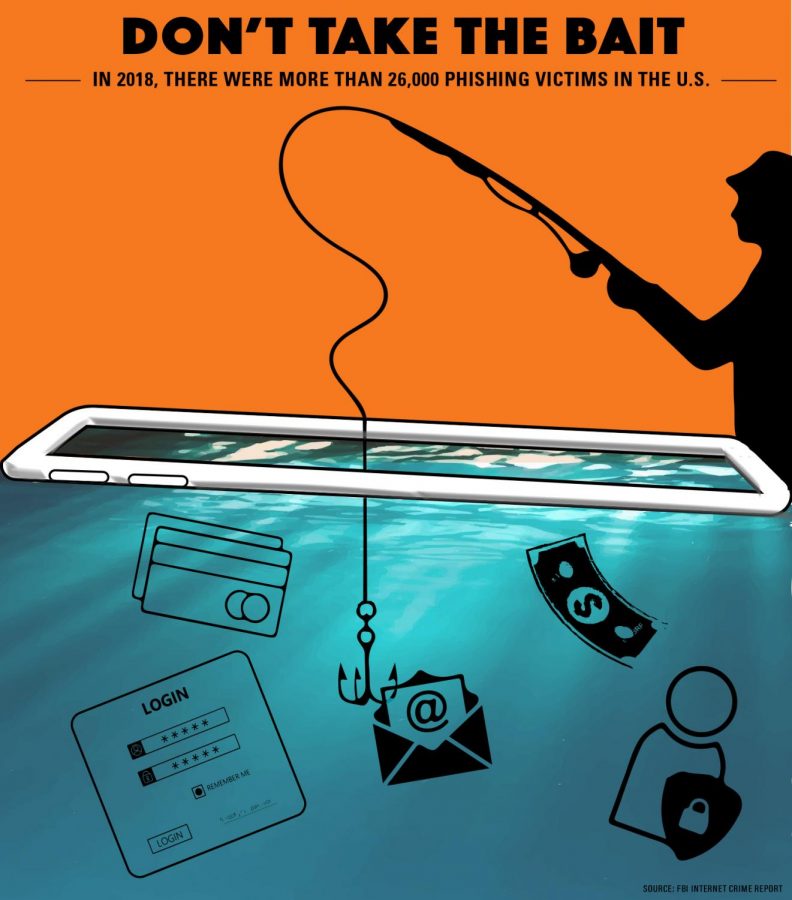Phishing issue tackled by program
According to the FBI’s Internet crime report for 2018, there were more than 26,000 victims of phishing last year. Combined, the victims lost more than $48 million.
It is for this reason that the ULM’s Information Technology staff continually monitors our email activity and send out warning emails to better inform us of how to react when we are targeted by scams. The IT staff have adopted several applications to control the amount of spam and phishing emails that get to students.
“We utilize a spam filter appliance called Beracuda that constantly sits between any external sender and your ULM email address,” said Arpan Gurjar, the Enterprise Security and Systems specialist. “Most of the spam emails will get caught by the appliance. We also enforce a system of rate control on all internal email addresses that limits the number of emails you can send within a given period of time.”
Gurjar said that they also have software that flags emails containing sensitive or suspicious information. These emails get sent to the specialists at the office and they go through the email to determine if it can still be sent or not. The appliance is also designed to block external senders from ever emailing that particular student again.
College students are the most popular phishing victims, according to WHYY. Just as the information technologists are deriving new and better ways to reduce this issue, the spammers and phishers are also learning new ways of phishing. It is a constant cat and mouse game. The spammers and phishers have learned to tailor their emails to reach the students by exploiting their curiosity, fear and empathy.
“I always make sure to check who the sender is before opening suspicious emails. Most times, they contain grammatical errors and have crazy email addresses,” said Jonathan Vu, a junior pre-pharmacy major.
Vu said he makes sure to delete such emails from his inbox and also from the delete box. He takes these measures to make sure that no virus gets on his computer. Another thing that can happen when you open these emails or click the links is keylogging.
Keystroke logging is an act of tracking and recording every keystroke entry made on a computer, often without the permission or knowledge of the user. This way, the phishers and scammers do not even have to directly ask you for sensitive information, they just key-log your computer activity.
“I recently received emails telling me to click a link or fill out a survey. I always make sure to read them carefully before deleting them even though I know that I am not expecting any emails from the sender,” said Jessica Rojas, a sophomore biology major.
Rojas said most of the time she found these false notifications in her inbox annoying as it makes her think she has a legitimate email only to click it and discover it’s a spam.
She also said that one way she avoids falling victim of this phishing activity is by reading all emails carefully and making sure it is completely understood before clicking on any attachment, link or poll.







